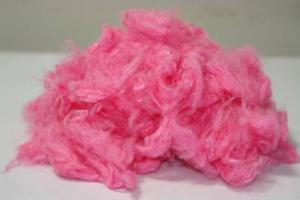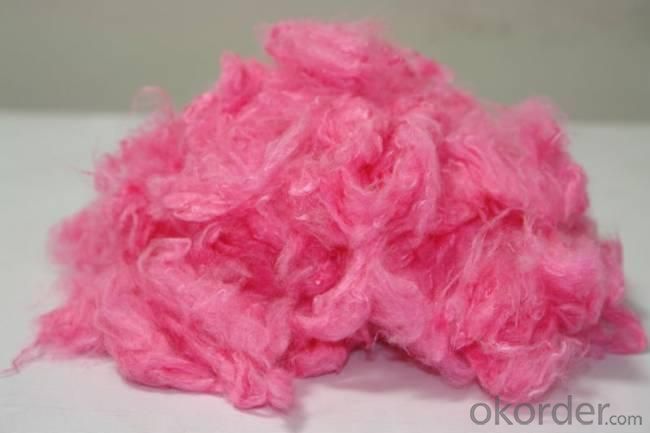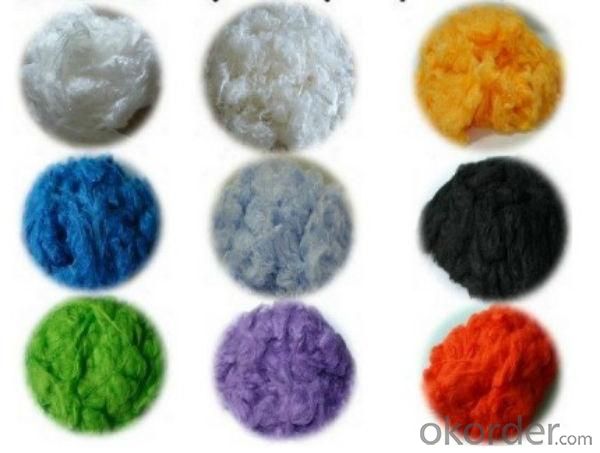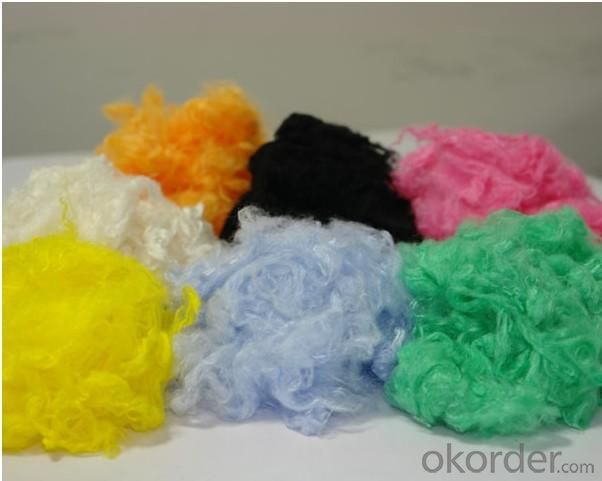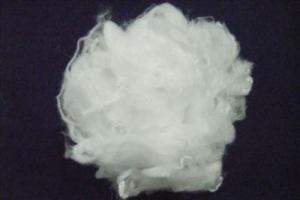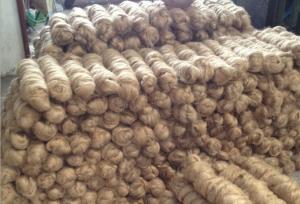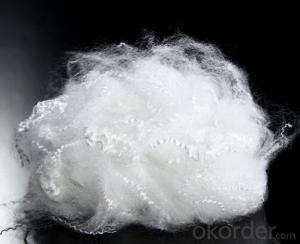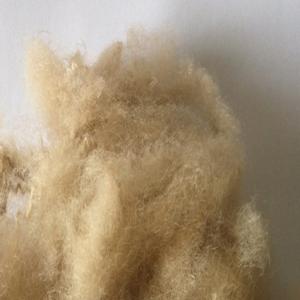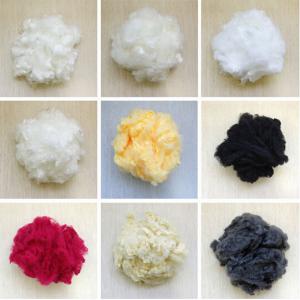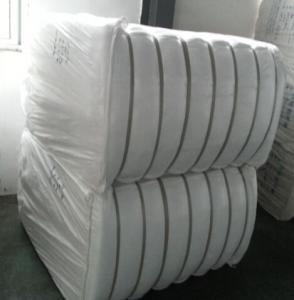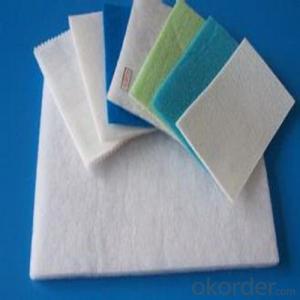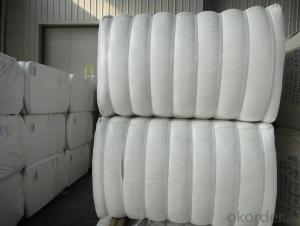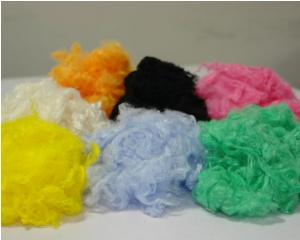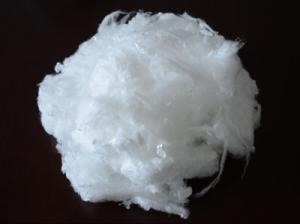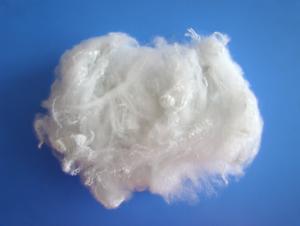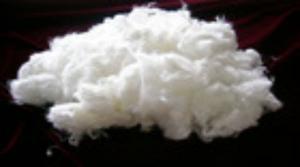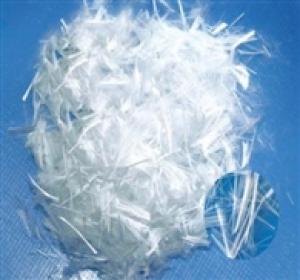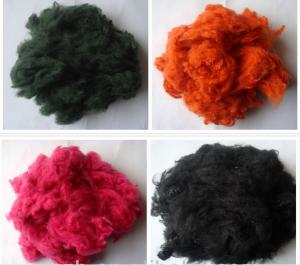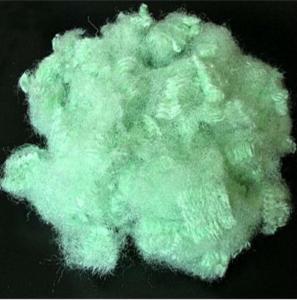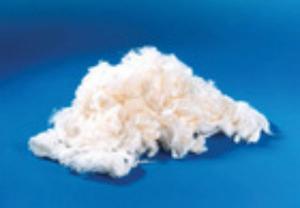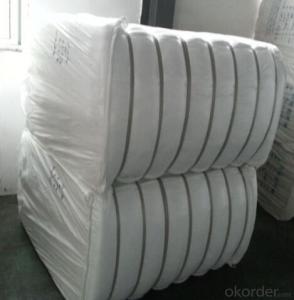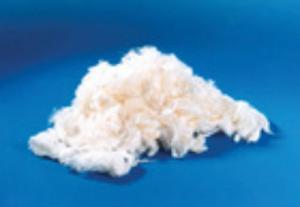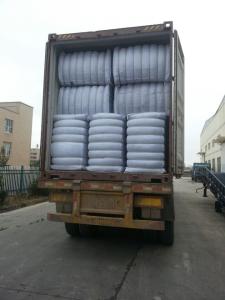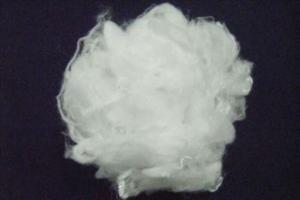Viscose Staple Fiber
- Loading Port:
- China Main Port
- Payment Terms:
- TT or LC
- Min Order Qty:
- 1 TON m.t.
- Supply Capability:
- 2000 Tons Per Month m.t./month
OKorder Service Pledge
OKorder Financial Service
You Might Also Like
Description of Viscose Staple Fiber:
Viscose Staple Fiber (VSF), a natural, bio-degradable fiber with characteristics somewhat similar to cotton is obtained from wood pulp or cotton pulp. As an extremely versatile and easily blendable fiber, VSF is widely used in apparels, home textiles, dress material, knitted wear and non-woven applications. Our 100% viscose staple fiber is available in bright, semi-extinction, high white, high strength short as well as various lengths.
Material: 100% Viscose
Fiber Type: Staple
Pattern: Dyed
Feature: Flame Retardant, Anti-Bacteria, Other Use: Spinning, Weaving
Place of Origin: Shanghai China (Mainland)
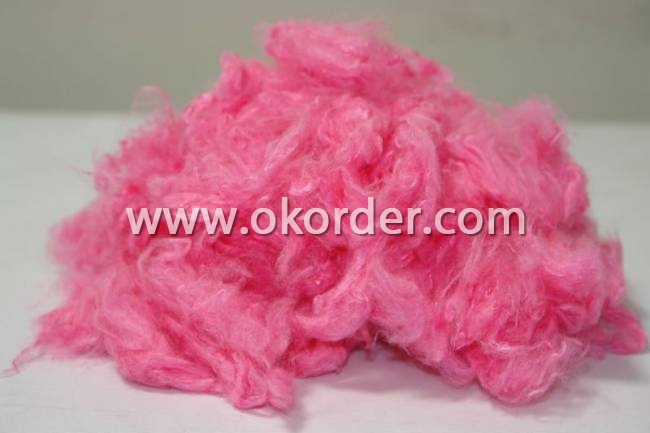
Sizes available:
1) 1.33dtex(1.2D) x 32mm
2) 1.33dtex(1.2D) x 38mm
3) 1.56dtex(1.4D) x 38mm
4) 1.67dtex(1.5D) x 38mm
5) 2.22dtex(2D) x 38mm
6) 2.22dtex(2D) x 51mm
7) 2.78dtex(2.5D) x 51mm
8) 2.78dtex(2.5D) x 62mm
9) 3.3 ~ 5.6dtex (3 ~ 5D)
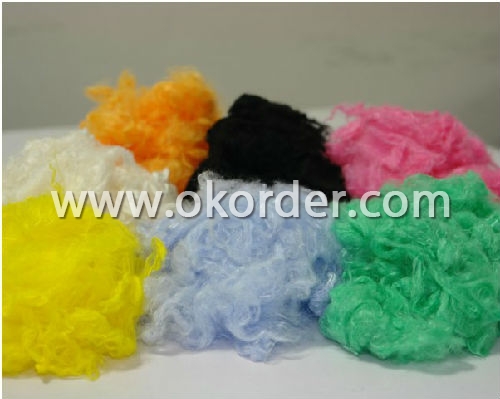
- Q: What's the difference between vinegar fiber and polyester fiber?
- Polyester: 1) polyester fiber is an important variety of synthetic fiber. It is the commodity name of polyester fiber in our country. It is a pure terephthalic acid (PTA) or terephthalic acid methyl ester two (DMT) and ethylene glycol (EG) as a fiber polymer, polyethylene terephthalate as raw materials by esterification or transesterification and polycondensation prepared (PET), the spinning and postprocessing fibers.
- Q: Advantages of bamboo fiber products
- Hygroscopicity, moisture and permeability in the textile fiber, bamboo fiber textiles in summer and autumn, makes people feel cool, especially in winter and spring; the use of fleeciness comfortable and can eliminate excess heat and moisture, do not get angry do not dry hair.
- Q: Bamboo fiber fabric is a back - it regenerated fiber
- Bamboo fiber in China is the main raw material of Sichuan bamboo, bamboo, bamboo components, bamboo charcoal. Bamboo fiber, plainly, is a kind of fiber extracted from bamboo. This fiber is not polluted and has regeneration, so it is called regenerated fiber!
- Q: How to judge whether it is bamboo fiber?
- Draw out thread, burn no black smoke, only a little white ashes, and poor thread burning more smoke.
- Q: Does Vic fiber belong to admixture?
- I don't know why you hung up so long.Although I didn't use your "Vic" fiber, I used other fibers.
- Q: Which is better, superfine fiber or PU material?
- PU is Pu, Pu is polyurethane ingredients skin. Now this material is widely used clothing manufacturer known as the production of clothing, leather clothing. PU is the abbreviation of urethane ploy English, Chinese chemical name: polyurethane, its quality is good or bad, good use of imported leather bags;PU matchs leather is general, its reverse side is the leather of second layers of leather, coated with a layer of PU resin on the surface, so also called film leather. The price is lower and the utilization rate is high. It varies with the change of the process also made various grades of varieties, such as imported two layers of leather, with unique technology, stable quality, new varieties and other characteristics, for the present high-grade leather, the price and the class as head of leather.
- Q: How to distinguish between seven and four hole fiber fiber
- The four hole and seven hole respectively. The full name of the four hole three-dimensional crimp polyester fiber, three-dimensional crimp polyester fiber seven.
- Q: What is the difference between particleboard, solid wood multilayer board and MDF? What are the advantages and disadvantages?
- Also known as a particle board, bagasse board, made of wood or other lignocellulosic materials, after the application of adhesive, heat and pressure under the synthetic glue board. In the production process, the general use of formaldehyde based adhesives, so the finished product will release more or less free formaldehyde, when the content of free formaldehyde exceeds certain limits, it will affect human health.
- Q: How are fibers classified?
- Fiber can be divided into natural fiber and chemical fiber according to its source.Chemical fiber is a natural or synthetic polymer material as raw material, through chemical or physical methods of processing made of fiber collectively, including man-made fibers, synthetic fibers, inorganic fibers.Also known as synthetic fiber regenerated fiber, regenerated cellulose, protein, starch and fiber in fiber regeneration is containing synthetic fiber, natural fiber or protein fiber material, such as wood fiber raw material, sugar cane, reed, soybean protein fiber and other textile processing lost value, textile fiber made by chemical processing the. Inorganic fiber is made from minerals, such as glass fiber, metal fiber and so on.
- Q: Which is better, polyester fiber or silk?
- Of course it is silk, silk is very comfortable; polyester fiber is not as good as silk, and once the temperature is high, it will produce harmful substances, harm the body
1. Manufacturer Overview
| Location | Jiangsu,China |
| Year Established | 2003 |
| Annual Output Value | US$10 Million - US$50 Million |
| Main Markets | 68.00% Domestic Market 7.00% Eastern Europe 5.00% Mid East 4.00% Western Europe 3.00% South America 2.00% Southern Europe 2.00% Southeast Asia 2.00% South Asia 2.00% Africa 2.00% North America 1.00% Eastern Asia 1.00% Central America 1.00% Northern Europe |
| Company Certifications |
2. Manufacturer Certificates
| a) Certification Name | |
| Range | |
| Reference | |
| Validity Period |
3. Manufacturer Capability
| a) Trade Capacity | |
| Nearest Port | shanghai,ningbo |
| Export Percentage | 51% - 60% |
| No.of Employees in Trade Department | 6-10 People |
| Language Spoken: | English, Chinese |
| b) Factory Information | |
| Factory Size: | 30,000-50,000 square meters |
| No. of Production Lines | 4 |
| Contract Manufacturing | OEM Service Offered Design Service Offered Buyer Label Offered |
| Product Price Range | High and/or Average |
Send your message to us
Viscose Staple Fiber
- Loading Port:
- China Main Port
- Payment Terms:
- TT or LC
- Min Order Qty:
- 1 TON m.t.
- Supply Capability:
- 2000 Tons Per Month m.t./month
OKorder Service Pledge
OKorder Financial Service
Similar products
Hot products
Hot Searches
Related keywords
